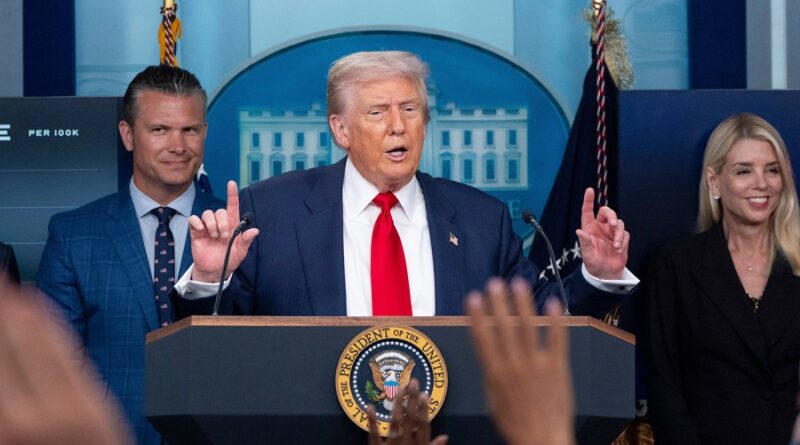US Military Considers National Guard Deployment to Combat D.C. Crime
In a fresh move to address soaring street crime rates in the nation’s capital, the United States military is considering deploying National Guard forces in Washington, D.C. Although no formal deployment has been authorized by President Trump as of the start of the week, expectations have been set for a forthcoming announcement. It’s anticipated that the president will declare the deployment of a significant number of District of Columbia National Guardsmen to aid local law enforcement officers in a press statement from the White House.
Additional details on the matter were not presented initially on Monday. However, despite a trend of declining crime rates in Washington, D.C., President Trump has maintained the opinion that crime is spiraling unchecked. He has gone as far as implying a possible federal intervention if the situation doesn’t improve.
Backing law enforcement efforts, the National Guard, the potential activation of which was earlier reported by Reuters, would likely not be granted powers to make arrests. They would, in contrast, function in a supporting role to police officers and release them for patrol responsibilities. This move is part of broader efforts by the Trump administration to curb the crime rates in the city.
Another element of President Trump’s aggressive stance against local crime is the proposed temporary redeployment of approximately 120 F.B.I. agents in Washington for nighttime patrol duties. With most of the agents expected to be drawn from the F.B.I.’s Washington field office, these changes would alter the nature of their day-to-day responsibilities.
This potential activation of forces in Washington follows a prior deployment this summer where nearly 5,000 National Guard troops were dispatched to Los Angeles. Their mission, which came in response to increasing public unrest over immigration raids, was to assist in controlling protests and provide added security for agencis conducing the operations.
Following the Los Angeles deployment, all but approximately 250 of the National Guard forces have subsequently been withdrawn. This strategic co-deployment alongside federal agents serves as a backdrop to President Trump’s planned implementation in Washington.
There’s precedence in President Trump’s decisions to engage National Guard troops in efforts of maintaining law and order. During his first term, several instances saw him summon the Guard, along with federal law enforcement, to disperse peaceful Black Lives Matter demonstrations following the tragic death of George Floyd by police in 2020.
Given the unique autonomy configuration of the District of Columbia, the president has significant discretion in deploying its National Guard forces. In stark contrast to state governors, the District of Columbia’s governance doesn’t control its National Guard, hence providing the president with increased deployment flexibility.
The usage of military forces, particularly the National Guard, to aid in domestic law enforcement has historically been a contentious issue. It brings to the fore questions about the boundaries between military and civilian law enforcement activities.
However, President Trump’s strategies evidently lean towards the use of such forces in the face of escalating crime rates or civil unrest. The potential deployment of the National Guard in Washington, D.C. highlights this policy direction.
Whether this move would significantly improve the situation in Washington remains to be seen. Experts and policymakers are watching closely and will undoubtedly analyze the outcomes of this stealthy strategy.
For many, the deployment of National Guard troops is expected to provide much-needed assistance to overextended local law enforcement. However, others fear that the military’s movement into domestic law and order issues may signal a concerning shift in methods of dealing with crime.
In summary, the U.S. administration, under the leadership of President Trump, is strategizing to combat crime rates with measures like the potential deployment of National Guard in Washington, D.C. It is anticipated that these efforts, while raising questions of civil liberties and police enforcement manners, might aid local law enforcement and influence the broader picture of crime in the capital.

